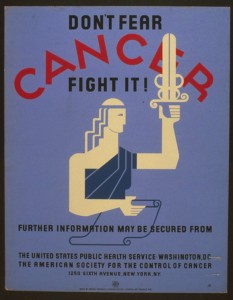 The short version:
The short version:
In December I will begin a new phase of treatment for my cancer. I will be going through intensive chemotherapy followed by an autologous (self) stem cell transplant. This process will in essence “reboot” my blood system. The process will take approximately 4 months followed by at least a year of rebuilding my immune system. During that time I expect to keep working, though remotely. If you would like to follow the details of my progress I have set up a site on Caring Bridge, a web service dedicated to charting people’s treatments and recovery: http://www.caringbridge.org/visit/virtualdave
The very short version:
Dude! It’s like friken’ Star Trek where they blast away my cancer and bone marrow and then regrow the marrow using my own stem cells!
The long version:
I talked with my dear friend Sue last weekend who reminded me that for many, blogs such as these are their first brush with intensive cancer treatments. I know I have greatly benefited from reading the journey of others, so I feel I should do the same.
First, some background for those who may be joining the party late. In February of 2013 I was diagnosed with stage III Hodgkin’s Lymphoma. The normal treatment for Hodgkin’s lymphoma (also called Hodgkin’s Disease) is a form of chemotherapy called ABVD. This regiment is almost 30 years old and has a great track record of curing the disease. I went through 6 months of ABVD…that’s about 12 infusions. It was not fun. I lost my hair, my taste buds, and a fair bit of my red blood cells (anemia), and white blood cells (neutropenia). This meant I was tired and had to avoid infections.
The good news is that this course of treatment eliminated nearly all of my cancer. The bed news is that in cancer, “nearly” is not nearly good enough. Unlike many chronic cancers where the goal is control or remission, the goal in Hodgkin’s lymphoma is cure. So when a PET Scan and follow-up biopsy found markers of lymphoma, it meant there was a need to a second line of treatment (what oncologists refer to as – and I’m not making this up -“salvage treatment”).
After consulting with my oncologist and specialists at Upstate Medical University and the Dana Farber Institute, we’ve settled on autologous stem cell transplantation. It is a process that uses a “lethal” dose of chemotherapy to kill the remaining cancer. It is lethal in that it not only kills the cancer, but my bone marrow as well. My bone marrow will then be regrown from transplanted bone marrow stem cells.
The treatment begins with three cycles of a chemotherapy regime called ICE (insert Vanilla Ice joke here). Unlike my previous chemo each course requires 4 days in the hospital followed by two or three weeks off. Assuming these treatments shrink the remaining microscopic cancer (their words, not mine) into remission, the transplant center will then harvest my bone marrow stem cells.
This is done in a set up like dialysis where blood comes out through an IV, the stem cells are captured, and the rest of the blood cells go back into me. The stem cells are then frozen.
Note: I am having what is called an autologous stem cell transplant meaning we are transplanting my own cells. No rejection and no donor (but thanks for those who offered me their blood).
Next they check me into the hospital for the transplant itself. This 15-20 day procedure starts with a “lethal dose” of chemo. It is lethal because aside from killing the remaining cancer, it kills my bone marrow. 6-9 days later they transplant my now thawed out stem cells. This consists of simply sending them through an IV like any other blood transfusion. The stem cells find their way back to the center of my bones and start rebooting my blood system (to me this sounds like magic, but I’ve been assured science is still at play).
They do this in the hospital for two main reasons: 1. they have to give me red blood cells and platelets until I can make my own, and 2. I will have virtually no immune system and have to be on isolation. Even once my bone marrow grows back, my immune system will be brand new and have no acquired immunity. So things like chicken pox and polio are a real threat.
This means that even after I come home from the hospital no flowers (or mowing or gardening), no raw foods, and no visitors. While I’ll be able to go out after a few weeks for the next two years I’ll be immune compromised and need to avoid large crowds and sick folks. They even have to revaccinate me to mumps and all the childhood illnesses.
The good news is that I am going into this transplant process with a lot of positives. I am (relatively) young. The first round of chemo only left “microscopic” remnants of cancer (the doctor’s words, not mine). My first rounds of chemo were very effective. However, there is still a chance that the cancer may return. In that case it will be time for plan c, and then I’ll write an overly long post about donor stem cell transplants.
Now for some logistics. I have set up a site on Caring Bridge, a web service dedicated to charting people’s treatments and recovery: http://www.caringbridge.org/visit/virtualdave While I still plan on putting major updates here, and of course snarky quips on Twitter and Facebook, I won’t muck up those channels with the daily stuff (and whining…I predict a lot of whining).
Many people have graciously offered to help, and wonder how they can chip in. For those in Syracuse we will need meals, particularly when I am in the hospital for chemo and then the transplant. Anna and I are looking for friends to take the boys skiing/snow boarding when the winter hits. Once again, we’ll try and use the caring bridge for other needs.
Lastly, I need your understanding. For the next year I am going to be very much the Professor in the bubble. My time outside the house will be limited, and possibly masked. Both at the hospital and at home no flowers, no balloons, and limited homemade foods (for me, for the family it is fine). However, good books, good DVDs, and SciFi suggestions always welcome. I’ll also be only a Skype session away.
In all seriousness, the next few months are going to be tough. More hair loss, fewer taste buds, pain, and generally feeling like crap. I’ve been there, and I can do it again. Some have said that is brave. It is not. For me it is a simple matter of survival. I have no real choice. However, it is my family who have chosen to not only stand by me, but tell me bad jokes until I smile, held me while I ached, waited patiently for me to catch my breath on the smallest of hills, quickly cleared food when I’m queasy, and never let me lose hope. My wife is brave. My sons are courageous. My parents, brothers and sisters are fonts of boundless optimism and comfort. For those who want to help me, help them.
Resources to Learn More:
Great short video on Hodgkin’s Lymphoma
http://www.youtube.com/watch?v=L5EgmtwvK68&feature=youtu.be
Great web site on stem cell transplantation
http://www.bmtinfonet.org
My Caring Bridge site
http://www.caringbridge.org/visit/virtualdave
My new favorite funny cancer site
http://www.cafepress.com/chucklenut

 The short version:
The short version: Today is my last day of chemotherapy. Hopefully it is my last days fighting cancer, but I won’t know that until a PET Scan in 3 weeks (and really for five years or so). I feel compelled to share my experience, or at least what I learned from the process before it is colored by an outcome. I feel compelled to do so, because so many others have shared their experiences online and I have greatly benefitted from them.
Today is my last day of chemotherapy. Hopefully it is my last days fighting cancer, but I won’t know that until a PET Scan in 3 weeks (and really for five years or so). I feel compelled to share my experience, or at least what I learned from the process before it is colored by an outcome. I feel compelled to do so, because so many others have shared their experiences online and I have greatly benefitted from them.